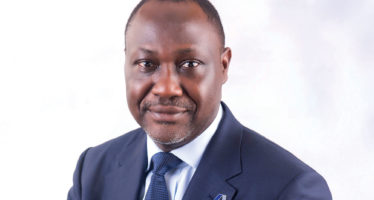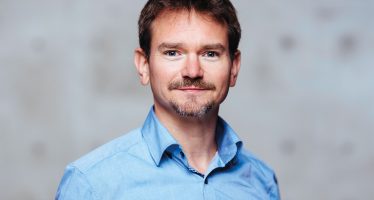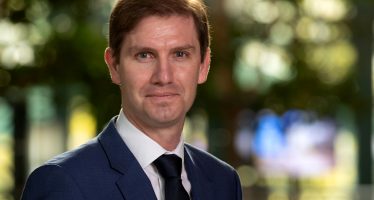Africa Finance Corporation: Powering Africa’s Future Through Pragmatic Investment and Infrastructure
The Africa Finance Corporation is redefining development on the continent by championing bankable, climate-resilient, and inclusive infrastructure projects. With US$17bn invested across 36 countries, AFC is a model of how strategic capital and partnerships can catalyse Africa’s sustainable growth.
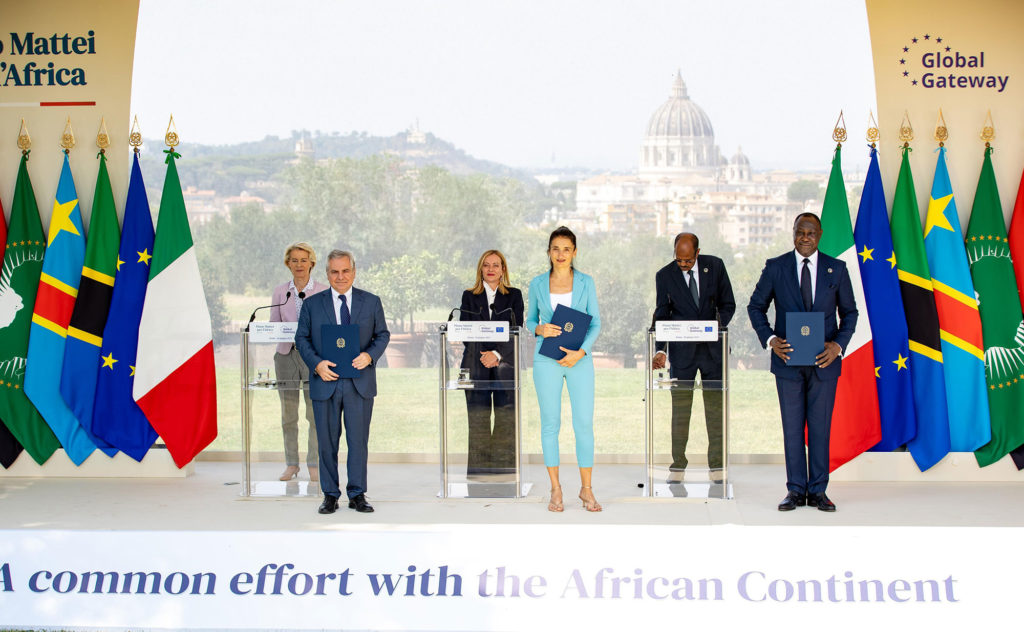
AFC President & CEO Samaila Zubairu at the Mattei Plan–Global Gateway Summit advancing AFC’s partnership with CDP and SACE.
In an era where long-term investment is displacing traditional aid as the engine of sustainable global development, the Africa Finance Corporation (AFC) has become one of the most dynamic institutions. Established in 2007, AFC was designed to fill a glaring gap—funding and executing critical infrastructure that drives industrialisation, regional integration, and economic resilience across Africa.
With more than US$17bn deployed across over 160 transformative projects in 36 countries, AFC combines the development mandate of a multilateral with the operational agility of a pragmatic institution. Its model is grounded in delivering bankable infrastructure that is financially viable, socially inclusive, and environmentally sound. Backed by strong credit ratings — Moody’s (A3, Stable), Japan Credit Rating Agency (A+, Stable), S&P Global (China) (AAA_spc, Stable), and China Chengxin International (AAA, Stable) — AFC has earned global investor trust while remaining deeply rooted in African priorities.
Delivering Infrastructure That Transforms
AFC’s portfolio spans the continent, with flagship projects demonstrating scale, sustainability, and cross-border impact. AFC is a major investor in Infinity Energy, the majority shareholder in Infinity Power Holdings — Africa’s largest independent renewable power producer. With operating wind and solar assets in Egypt, Senegal, and South Africa, Infinity Power Holdings generates over 4,200 GWh annually, enough to power 1.2mn homes and avoid more than 3mn tonnes of CO2 emissions. The Infinity platform is targeting 10 GW of installed capacity by 2030.
In Djibouti, AFC served as the lead developer and project manager for Red Sea Power, a consortium-owned venture that launched the country’s first utility-scale wind farm. The 60 MW Ghoubet facility now supplies clean power to nearly a million people—a milestone that sets Djibouti firmly on the path to becoming the first African nation powered entirely by renewables. This project highlights AFC’s ability to de-risk critical infrastructure and quickly mobilise capital to drive energy access and sustainability.
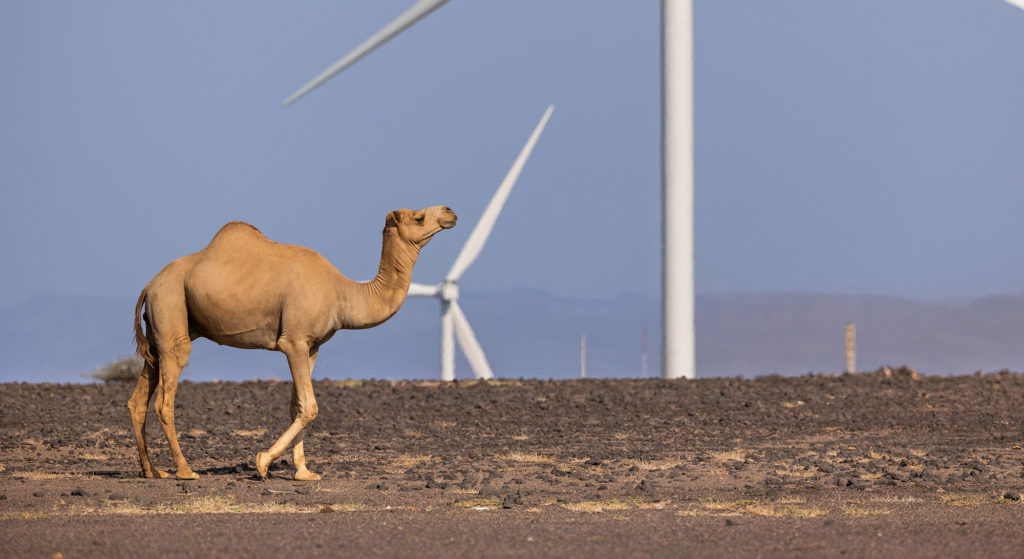
The Red Sea Power project sets Djibouti on course to become Africa’s first nation powered entirely by renewables.
Elsewhere, ARISE Integrated Industrial Platforms (IIP), a collaboration led by AFC, has become one of Africa’s leading industrial infrastructure platforms, operating across more than 14 countries. To date, it has deployed nearly US$2bn in infrastructure, while enabling over 50,000 jobs through its industrial ecosystem model. In 2025, ARISE IIP completed a landmark US$700mn capital raise, including both primary and secondary components, making it one of the largest private infrastructure transactions in Africa to date. The transaction welcomed Vision Invest — a leading Saudi infrastructure investment and development company — as a new institutional shareholder, joining AFC, Equitane, and FEDA (the impact investment arm of Afreximbank) in the ownership base. The deal also marked a successful partial exit for AFC, underscoring its ability to crowd in private capital and recycle finance into new transformative projects.
This capital infusion will support ARISE IIP’s continued expansion and the deepening of green, inclusive industrial ecosystems across Africa.
In the Democratic Republic of the Congo, AFC provided a US$350mn senior loan to support the expansion of the Kamoa‑Kakula Copper Complex—one of the world’s greenest copper mines. The project contributed around 4% of the country’s GDP in 2023, and approximately 91% of its workforce is Congolese, offering a strong model for sustainable and inclusive natural resource development.
One of the Corporation’s most ambitious undertakings is the Zambia–Lobito Rail Corridor: an 830km greenfield railway connecting Zambia to Angola’s Lobito Port. This project, once complete, will reduce transit times by half and unlock an estimated US$3.3bn in economic value.
Pioneering Climate-Resilient Infrastructure
Recognising the dual challenge of development and climate change, AFC launched AFC Capital Partners and its flagship Infrastructure Climate Resilient Fund (ICRF)—a US$750mn blended finance vehicle to accelerate investment in low-carbon, climate-proof infrastructure. To date, the ICRF has secured over US$400mn in commitments from international and regional partners.
The Fund aims to support over 760MW of new renewable capacity, bring clean power to 6.5 million people, and mitigate 24 million tonnes of CO2 emissions. In parallel, AFC continues to innovate with green bonds and carbon-linked instruments to help global investors finance Africa’s energy transition.
Climate resilience is increasingly built into every stage of AFC’s project planning. New investment proposals are assessed against physical and transitional climate risk scenarios, and environmental sustainability is systematically embedded into every stage of project design, construction, and operation.
Financial Strength That Attracts Capital
AFC’s operational and financial performance remains robust. Following a record 2024 where the Corporation generated over US$1.1bn in revenue and US$400mn comprehensive income, 2025 has pivoted toward capital mobilisation as a defining theme.
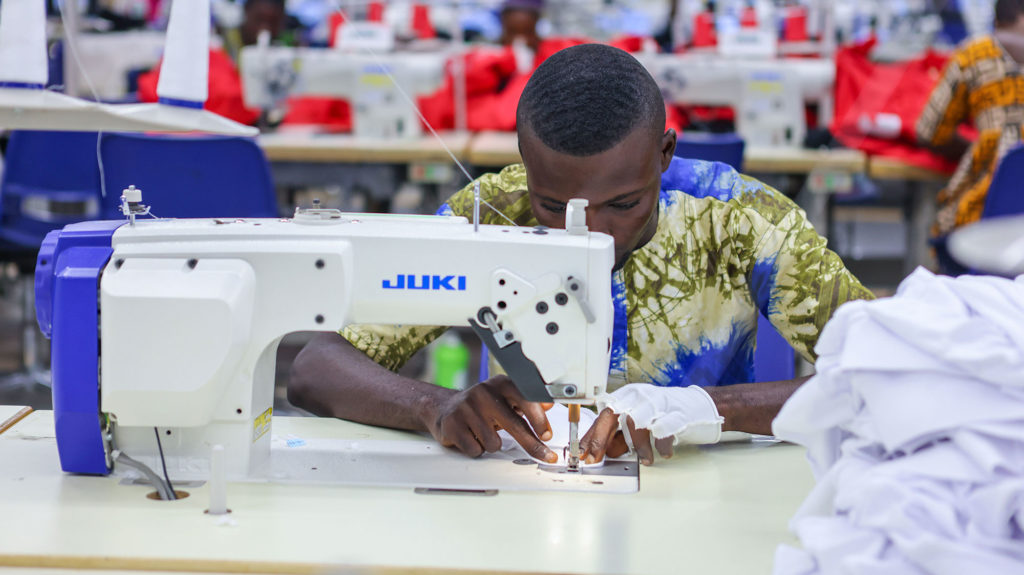
Empowering local industry: AFC-backed ARISE IIP creates jobs and value across Africa’s manufacturing hubs
This year, AFC achieved a series of landmark fundraising milestones that cement its reputation as Africa’s premier capital mobilisation platform. In January 2025, the Corporation issued its debut US$500mn hybrid bond, setting a benchmark for African issuers, which was significantly oversubscribed and drew strong participation from investors across Europe, Asia, and the Middle East. The momentum continued in February with the signing of a US$350mn Murabaha facility with leading Middle Eastern banks, advancing AFC’s strategy to diversify funding sources and deepen ties with Islamic finance markets. In June, AFC secured a US€250mn 10-year term loan from Cassa Depositi e Prestiti, guaranteed by SACE, to support renewable energy and infrastructure projects. This was followed in July by a AED 937.5mn (approximately US$255mn) sustainability-linked loan from UAE banks, structured to reward environmental performance. The fundraising drive culminated in September with the closing of a US$1.5bn syndicated loan, the largest in AFC’s history, attracting lenders from across the Middle East, Africa, Asia, and Europe. Together, these transactions illustrate AFC’s growing sophistication in mobilising diverse pools of capital at scale.
Further momentum was built through the Africa Saving for Growth Programme, launched at the 2025 UN General Assembly under the Global Africa Business Initiative, which aims to mobilise US$1.17tn of institutional savings into long-term infrastructure across the continent.
Empowering Sovereigns and Markets
Beyond deploying its own balance sheet, AFC supports sovereign and corporate issuers in accessing capital markets. In 2024, it served as Joint Lead Manager for Ecobank’s US$400mn Eurobond, the first by a Sub-Saharan bank since 2021. AFC also supported Egypt’s second Samurai bond issuance in November 2023, a private placement offering worth JPY 75bn (approximately US$50mn), acting as re-guarantor to SMBC.
These transactions demonstrate AFC’s vital role in helping African issuers tap both global and domestic liquidity through structured, credit-enhanced instruments. They also reflect growing global investor appetite for emerging market infrastructure—when paired with the right partners and governance.
AFC is also working with central banks and capital market authorities to deepen regional financial markets, improve liquidity, and build tools such as infrastructure credit guarantee schemes that can derisk long-term investment.
Looking Ahead
With Africa’s population projected to double by 2050, and infrastructure demand intensifying, the case for institutions like AFC has never been stronger. As President & CEO Samaila Zubairu notes: “Africa does not need charity. It needs capital. It has bankable projects. What it needs are trusted partners to execute and scale what it already has.”
By blending commercial discipline with a development mandate, AFC continues to redefine what’s possible in African infrastructure—building not only roads, ports, and power plants, but also economic sovereignty, climate resilience, and inclusive prosperity.
Its journey is far from over. AFC is actively exploring opportunities in digital infrastructure, clean energy storage, and regional connectivity projects that align with Africa’s Agenda 2063. With innovation, partnerships, and patient capital, AFC is poised to remain one of Africa’s most important institutions for decades to come.
You may have an interest in also reading…
Samaila Zubairu: Championing Africa’s Economic Transformation Through Infrastructure Investment
Under the stewardship of Samaila Zubairu, the Africa Finance Corporation has become a driving force for industrialisation, clean energy and
SHARE NOW – Sharing is Caring, Cool, and Convenient: a Pioneer of Sustainable Urban Mobility
SHARE NOW is a prime example of how collaboration can be more powerful than competition. SHARE NOW was born as
KBC Asset Management with CEO Johan Lema: ‘Everyone Invested’ Strategy Has Taken Belgian Firm to Prominence
Banking and insurance group KBC has a big, sprawling family: 41,000 employees and 12 million clients spread across Belgium, Czechia,














































































